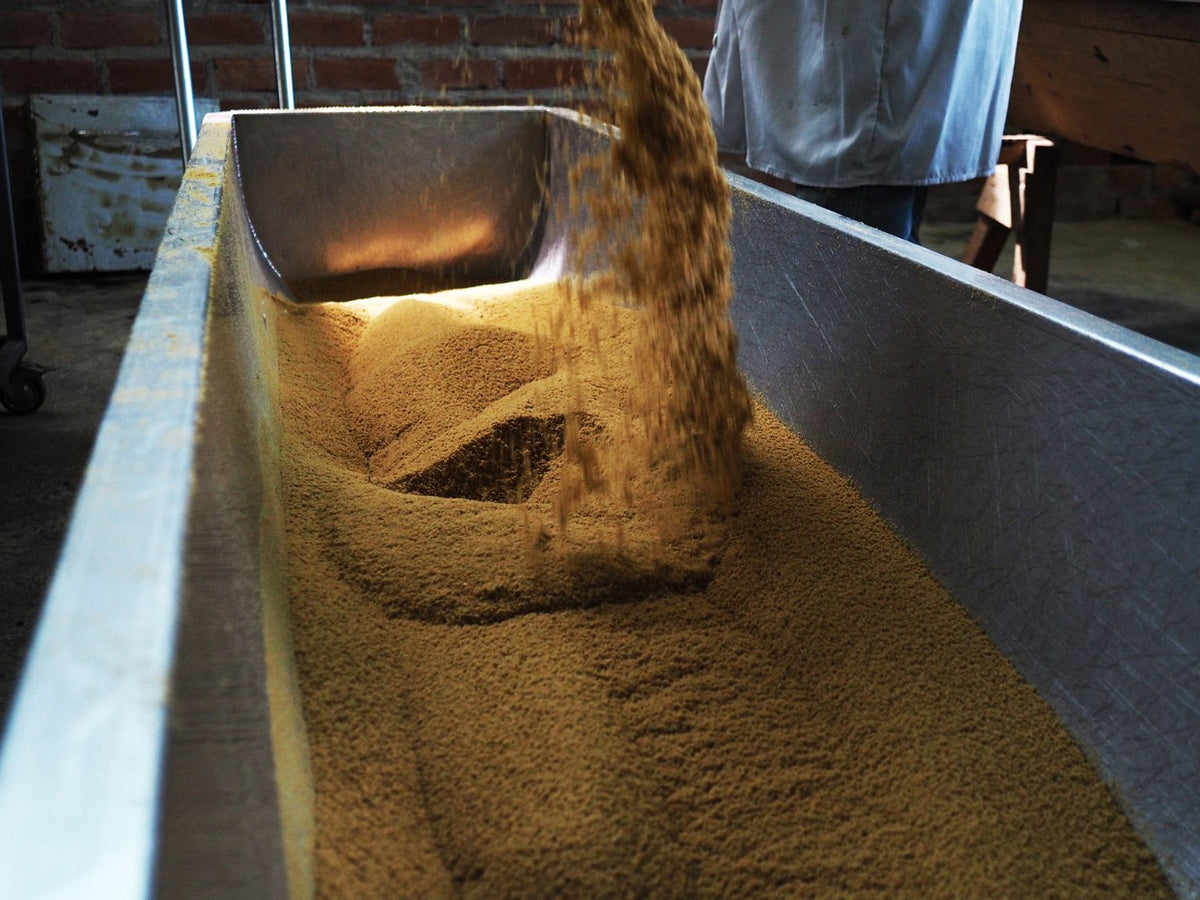Meet our panela producers

Discover the production process of this ecological sugar, a complete cane sugar (i.e. raw unrefined) organic and fair trade.
What is panela?
Where is panela produced?
How is panela produced?
Step 1

The sugar cane is passed through a machine which compresses it. Thus, we extract the juice which is a mixture of water and sugar.

Through the gray pipe (see photo), the juice enters the building and falls into a container with sieves to purify the water from the sugar cane.
2nd step

The liquid falls from the black pipe into a large cauldron. The clarification process begins: the sugar cane juice begins to heat.

To fuel the fire, producers use dry sugar cane, from which the juice has been extracted. It is difficult for them to control the boiling temperature because it depends on the burning of the sugarcane. It’s a very artisanal process.

A foam of impurities forms. It is removed by the sieve. Farmers harvest the moss to water their fields: nothing is lost!
Step 3

The boiling process can start. The juice falls into a second cauldron. Steam escapes because the sugar cane juice is boiled to evaporate the water and thus keep the juice pure and concentrated (a bit like when making maple syrup).
Step 4

The water has evaporated and the juice then passes into a third cauldron. It is brought to a stronger boil. The temperature is easier to control because the container is closer to the wall. With a very large spoon, the farmers lift the juice into the air and sauté it to leave a sort of very thin crust (like taffy). It will break on its own when touched.
Step 5

The panela is then put in a final, unheated cauldron. The very hot panela then begins to swell, like when you boil milk. With a shovel, farmers break this layer when it reaches very high in the container to allow the panela to be cooled by the air.
Step 6

The panela is still very moist, but it is beginning the granule formation stage. The colder it gets, the more it dries with air.

The producers mix everything until they obtain a fine panela texture like the one we eat!